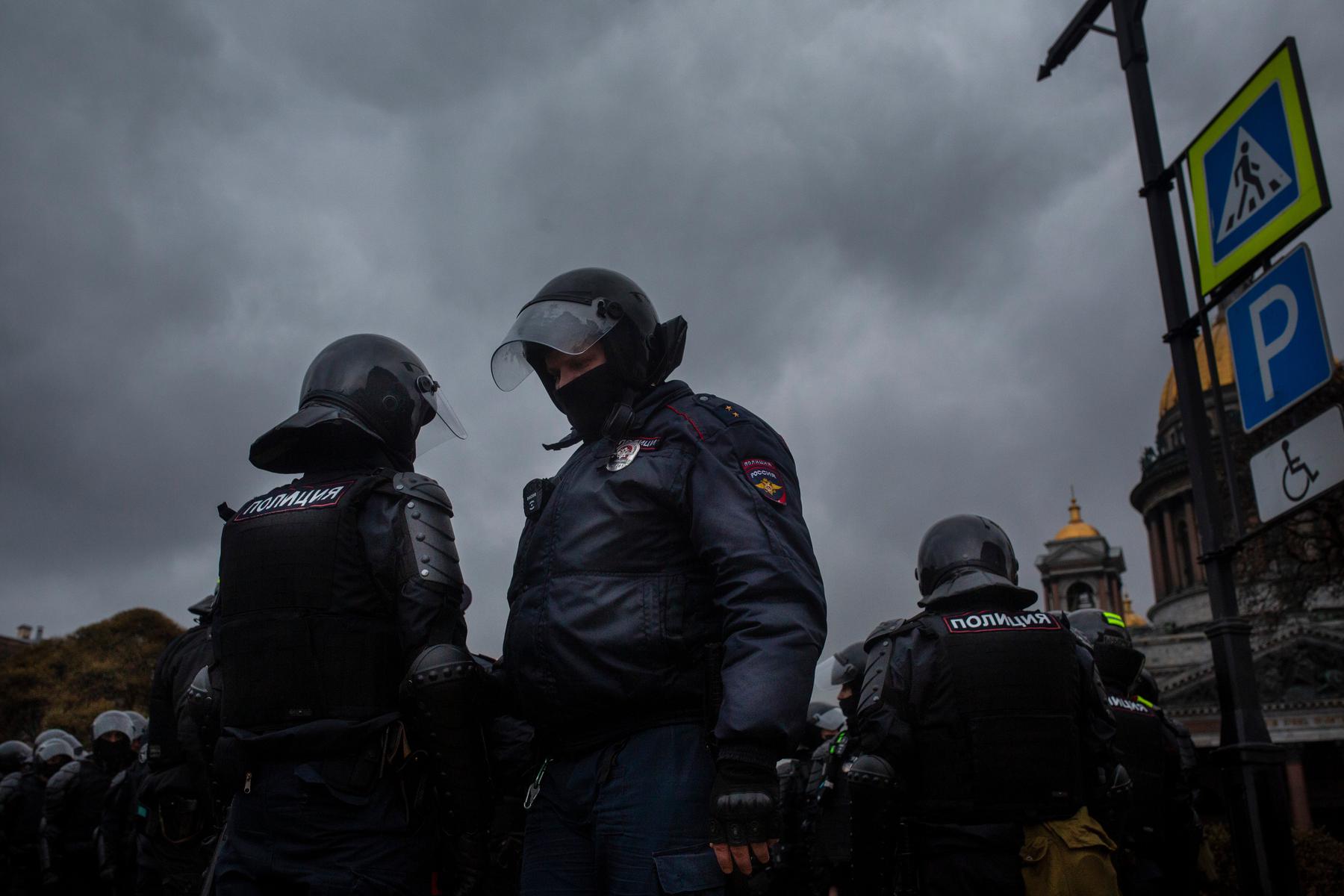
Here what’s in store for you this week:
- We take a deep dive into the mass anti-government protests in Russia, producing both a deep data-driven analysis of crackdowns from 2012 onwards, and a look at hotbeds of Russian police brutality;
- The $57 billion Yukos court drama nears its end. We explain the possible fallout from the most important legal standoff the Kremlin has ever faced;
- Plus, as the government cracks down on activists fighting gendered violence, we profile a civil society collective that keeps fighting for women’s rights despite being bestowed with the “foreign agent” label.
Want to get the full story? Click the links below for full-length articles in Russian.
Navalny vs Kremlin Standoff Deteriorates
The fifth wave of mass protests supporting Russian opposition activist Alexei Navalny swept through Russia last week. This set failed to become the largest in the three-month history of these demonstrations. Yet over 1,900 peaceful protesters still got arrested — the most since January. Following the protests, Navalny ended his life-threatening hunger strike. And they didn't stop the Kremlin from branding Navalny's political organization "extremist" and suspending its activities on Monday. This week, we look beyond the headlines to get an idea of where the standoff between Navalny and the Kremlin might be heading.
OUR DATA INVESTIGATION SUGGESTS ARRESTS WILL ONLY GROW. A special analysis from our data department's Daria Talanova examines why the arrest figures are so high for 2021. They have already reached the levels of 2020 despite only being four months into the year, and there are a wealth of factors at play besides Navalny. We have studied all court decisions under Article 20.2 of the Administrative Code (on violating the procedure for organizing or holding a rally) since 2015 and spotted a pattern of growing legal ambiguity of what constitutes these "violations." Authorities often loosely interpret the various laws laid out, finding loopholes such as declaring any protest participants "organizers" who neglected to request permission to protest or charging protesters instead for obstructing or interfering with pedestrians.
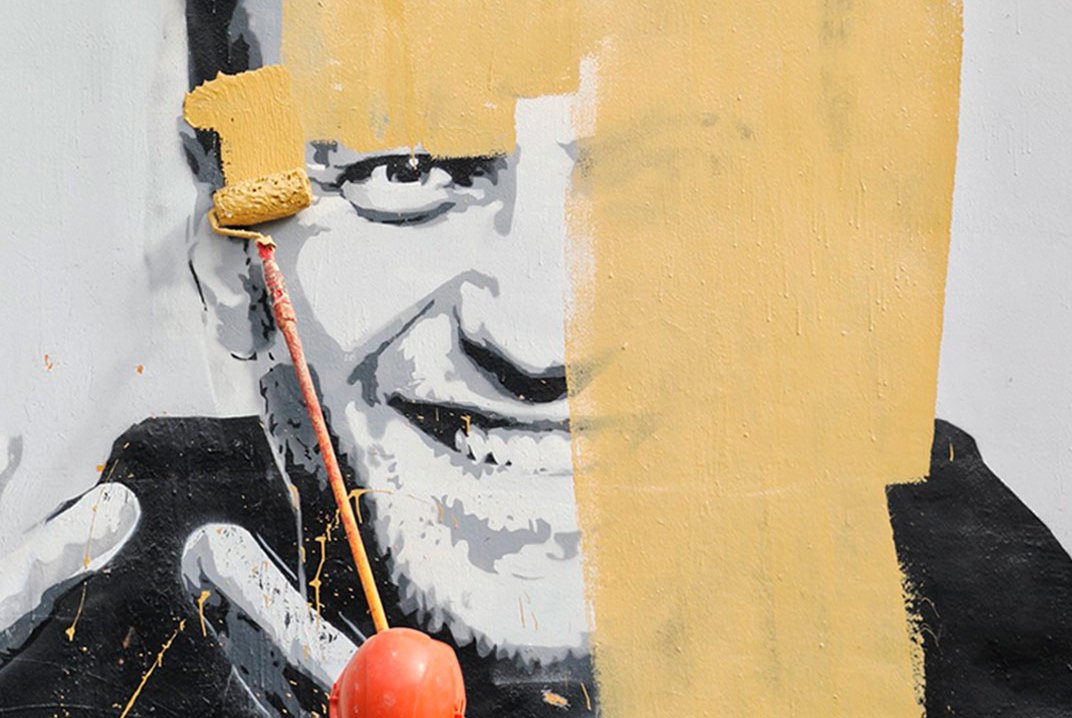
THE END OF AN ERA FOR SINGLE-PICKET PROTESTS. We also believe that Russian officials have figured out how to eliminate one of the most effective forms of civil disobedience in Russia in the last decade. After the Bolotnaya protests in 2012, the Kremlin ramped up restrictions on gatherings. Single-person pickets came to be one of the only forms of protest that did not require preliminary approval from authorities and could allegedly be held spontaneously. However, in practice, many single-picket protesters still got detained (such as activist Vladimir Ionov, who was ultimately forced to leave Russia in 2015). In recent years, the authorities became especially brutal with these solo protests, including rolling out additional legal restrictions. For example, pre-Bolotnaya Article 20.2 consisted of three parts; now, there are 12. Fines increased in this period, too.
ONCE THE OPPOSITION OUTPOST, ST. PETERSBURG BECOMES HOTBED OF POLICE BRUTALITY. Around half of all people arrested across Russia last week were detained in St. Petersburg. Our local correspondent, Tatiana Likhanova, exposes the role of one 'omnipresent' regional heavyweight, Vitaly Kosarim, and his role in perpetuating police violence. A head at one of the local riot police departments, Kosarim first turned heads for unprecedented police brutality on his watch over two years ago. Local authorities have been encouraging his 'successes' (including, financially), and now he leads one of the country's most brutal crackdowns on peaceful protesters. Shock batons are one of his most favored tools.
"There, some of the harshest detentions took place, and from time-to-time electric shocks [from stun guns] crackled. They were also used in the metro lobby, where people were thrown onto the stone floor and beaten," Likhanova quotes one of the witnesses.
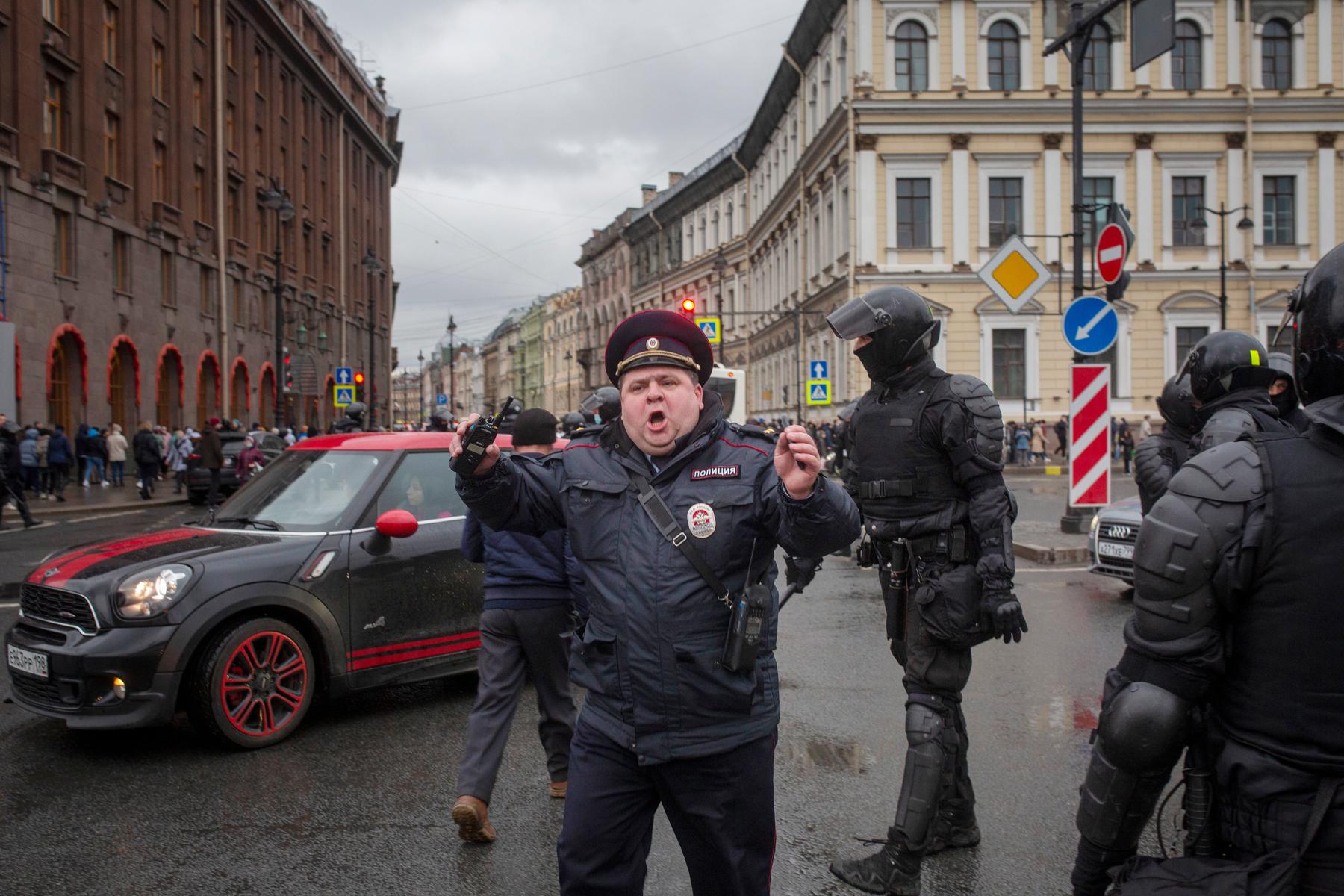
"I AM 65-YEARS-OLD. I'M SHORT OF BREATH, AND I HAVE HIGH BLOOD PRESSURE. I'LL DIE HERE," says another protester attacked during the crackdown. Back in January, St. Petersburg police were also noticeably hard on protesters, with one drawing an actual gun in the street and others electrocuting protesters.
MEANWHILE, NAVALNY'S HEALTH IS STILL DETERIORATING. Despite the end of his hunger strike, Navalny's life remains in danger. This week we published an open letter from his doctors demanding that he urgently be anesthetized and transferred to Moscow for treatment. "Removing a patient from a prolonged hunger strike requires special skills," the statement says. "We came to the conclusion that the prescribed treatment and observation tactics cannot be considered optimal. Of particular concern is the pain syndrome that has not been stopped, yet," Navalny's doctors warn.
BACKSTORY. The mass solidarity movement with imprisoned and poisoned opposition leader Navalny kicked off in late January 2021 when he was sentenced on politically motivated charges to more than two years in a penal colony. Russia's security forces arrested over 13,000 protesters who took to the streets across the country in the aftermath. The latest wave of repressions is part of a broader crackdown on dissent that intensified following President Putin's 2020 constitutional power grab. The government rolled out new and dramatically expanded existing repressive laws targeting civil society groups and journalists.
Read the data-driven investigation into the Russian state’s repressive tactics to cripple protests in full here, and our St. Petersburg dispatch on police brutality here.
Yukos Drama Nears End
It took 15 years of legal battles, but the Kremlin is about to get ordered to pay the largest fine ever for violating internationally-protected property rights. The Russian government recently received a signal that its final appeal in the Yukos case will likely not be won. A major embarrassment for the Kremlin, the pending loss will likely further alienate the Russian government from international courts. This week, our courts reporter Vera Chelisheva documents the Kremlin’s defense in the Yukos case disintegrating for good.
ABANDON ALL HOPE, KREMLIN. An adviser to the Dutch Supreme Court has recommended that Russia’s appeal in the Yukos oil company’s case be dismissed. The Kremlin brushed off the conclusion as a mere recommendation, but it looks likely that Dutch judges will follow through on the move. The Supreme Court in the Netherlands is expected to announce its final decision on September 24 this year. It seems sure to uphold the decision of the Hague Court of Appeal to pay Yukos shareholders more than $50 billion for the illegal expropriation of assets. Should the September 24 ruling be in Yukos’ favor, as anticipated, Russian assets and property held abroad could be at risk of seizure.
LET’S CALL THEFT THEFT. Dutch judges have left little room for interpretation of what they think really happened with once the largest oil company in Russia. They found the Kremlin’s tax claims against Yukos unfounded. They established that the Russian government used the claims to declare the company bankrupt and take possession of its assets. Russia rolled out the astronomical tax claims against Yukos in 2003, which ultimately resulted in its bankruptcy and liquidation in 2007.
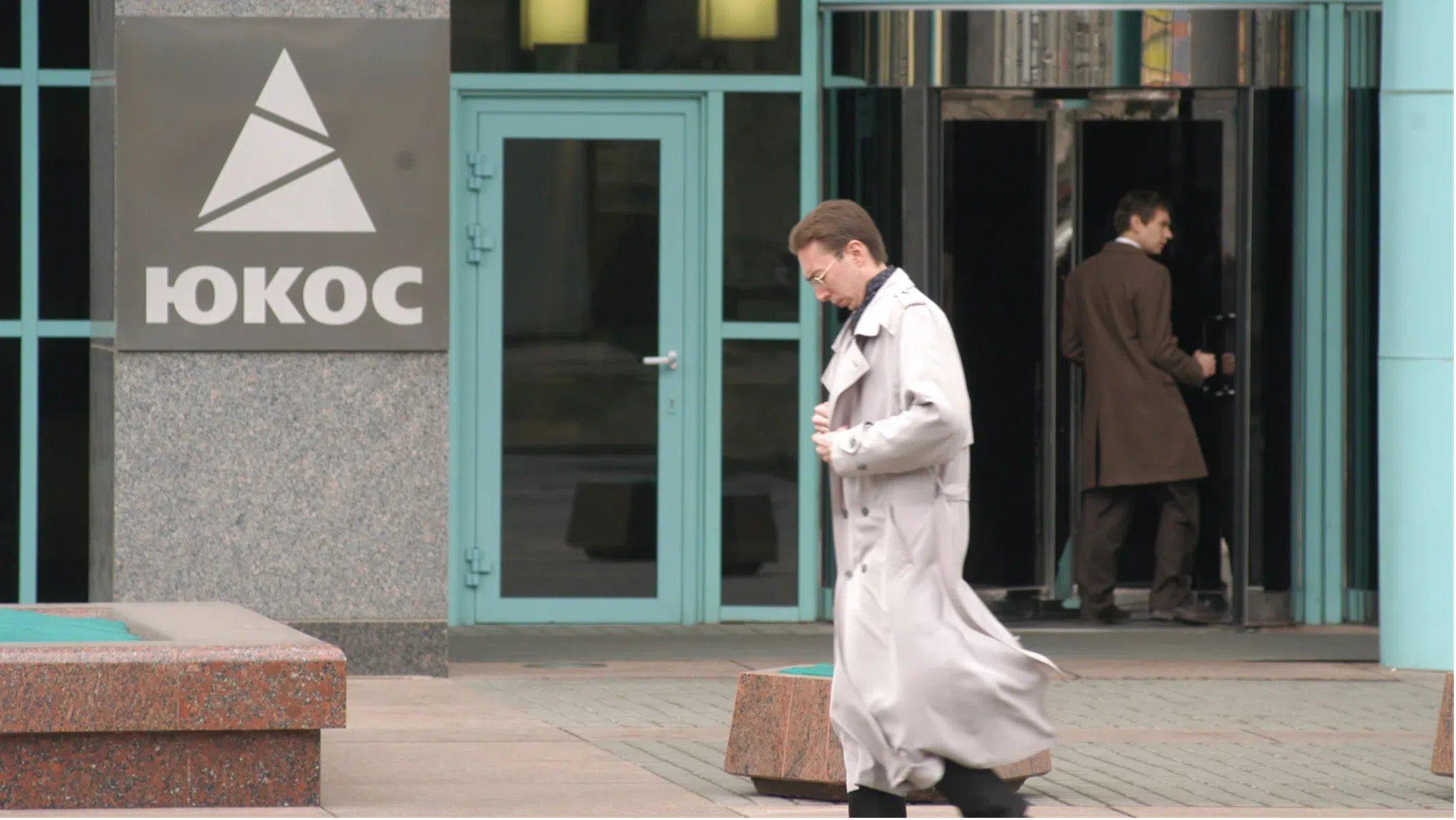
Поддержите
нашу работу!
Нажимая кнопку «Стать соучастником»,
я принимаю условия и подтверждаю свое гражданство РФ
Если у вас есть вопросы, пишите [email protected] или звоните:
+7 (929) 612-03-68
SHAKEDOWN AND POLITICAL PERSECUTION IN ONE PACKAGE. The judges also pointed out that “the State apparatus decided to take advantage of that vulnerability by launching a full assault on Yukos and its beneficial owners to bankrupt Yukos and appropriate its assets while, at the same time, removing Mr. Khodorkovsky from the political arena.” This is a quote from a 2014 ruling by the same court ordering Russia to pay the fine. Why is the case still open, then? The Kremlin spent the last seven years sending tens of millions of dollars to their legion of both Russian and international lawyers so they can mount endless appeals. But the evidence was so overwhelmingly obvious that even high-end lawyers failed to make a difference.
WILL RUSSIA PAY? UNLIKELY. WILL RUSSIA GET MORE DISMISSIVE OF INTERNATIONAL COURTS? YOU BET. The final verdict will confirm what most foreign investors have already known about the Russian government, anyway — that its approach to property rights is selective. Real shifts will happen in the growing international isolation of the country. The Russian state propaganda machine is already spinning the claim that Dutch investigators had “ignored evidence provided by the Russian Federation showing legal errors made by [earlier court rulings], as well as unlawful actions of former Yukos shareholders during the alleged ‘investment’ process and the legal proceedings.” Furthermore, in 2015, Vladimir Putin signed a law allowing the Constitutional Court of Russia to ignore the decisions of international courts.
BACKSTORY. The bankrolling and hostile takeover of Yukos remains one of the pivotal moments in the era of early Putinism in Russia. The oil giant was owned by Russian oligarch Mikhail Khodorkovsky. After he challenged Putin politically in 2003, the government took over the company, and Khodorkovsky was jailed. The oligarch became the first high-profile political prisoner under Putin’s regime. Yukos’ assets were absorbed by the Russian state-owned oil monopoly Rosneft. A decade later, the Kremlin pardoned Khodorkovsky (just before the 2014 Sochi Olympics) but forced him into exile in London. Since then, Khodorkovsky has emerged as a top Russian oppositional voice and keeps supporting the democratic development of the country through his Open Russia Foundation, one of the country’s leading pro-democracy organizations.
Read the full report on the collapsing appeal of the Russian government in the Yukos case here.
Kremlin vs Domestic Violence Activists, Explained
This week we check on one of the country's leading initiatives against gendered violence. Nasiliu.Net has been helping Russian women to survive through the pandemic of domestic violence since 2015. However, the government has recently branded the center as a 'foreign agent.' Our correspondent Lilit Sarkisyan documents how the organization is surviving under new state restrictions.
FIGHTING DOMESTIC VIOLENCE RUBS RUSSIAN AUTHORITIES THE WRONG WAY. The organization found itself on the 'foreign agents' list following an alleged anonymous complaint at the start of this year. The authorities took issue with Nasiliu getting a small UN grant for a project on gender equality. It funded the production of a female empowerment video, encouraging young women to pursue a wide spectrum of career paths. "I don't think that this was 'a political activity' — to show that girls, it turns out, can not only play with dolls but also dream of becoming programmers," Anna Rivina, founder and the director tells us.
THE 'FOREIGN AGENT' LABEL MADE THE LIFE OF ACTIVISTS MORE COMPLICATED. Sargsyan found that the organization now has to deal with myriad additional issues in its functioning, from securing funding to even being able to design pamphlets, as announcing its foreign agent status in the appropriately sized font obstructs other information or visuals. The new status also complicates work with domestic violence victims. Already reluctant to share their stories more generally, the 'foreign agent' label might further discourage some vulnerable women from reaching out.
EVICTED FROM AN OFFICE. Nasiliu recently had to move out of its office in downtown Moscow. One day the landlord just arrived accompanied by oversized men in leather jackets. He asked the activists to vacate the premises. They swiftly had to find a new office.
WHEN ACTIVISTS FOUNDED NASILIU IN 2015, FEW TALKED ABOUT RUSSIAN DOMESTIC VIOLENCE. Local media would rarely cover stories on the issue, and there were almost zero institutions available to which victims could reach out. However, the high-profile cases of Margarita Gracheva (her husband cut off her hands), the Khachaturyan sisters (tried for killing a sexually abusive father who tortured them too), and Anastasia Eschenko (murdered by a prominent historian) shifted the country's mood, Rivina says.
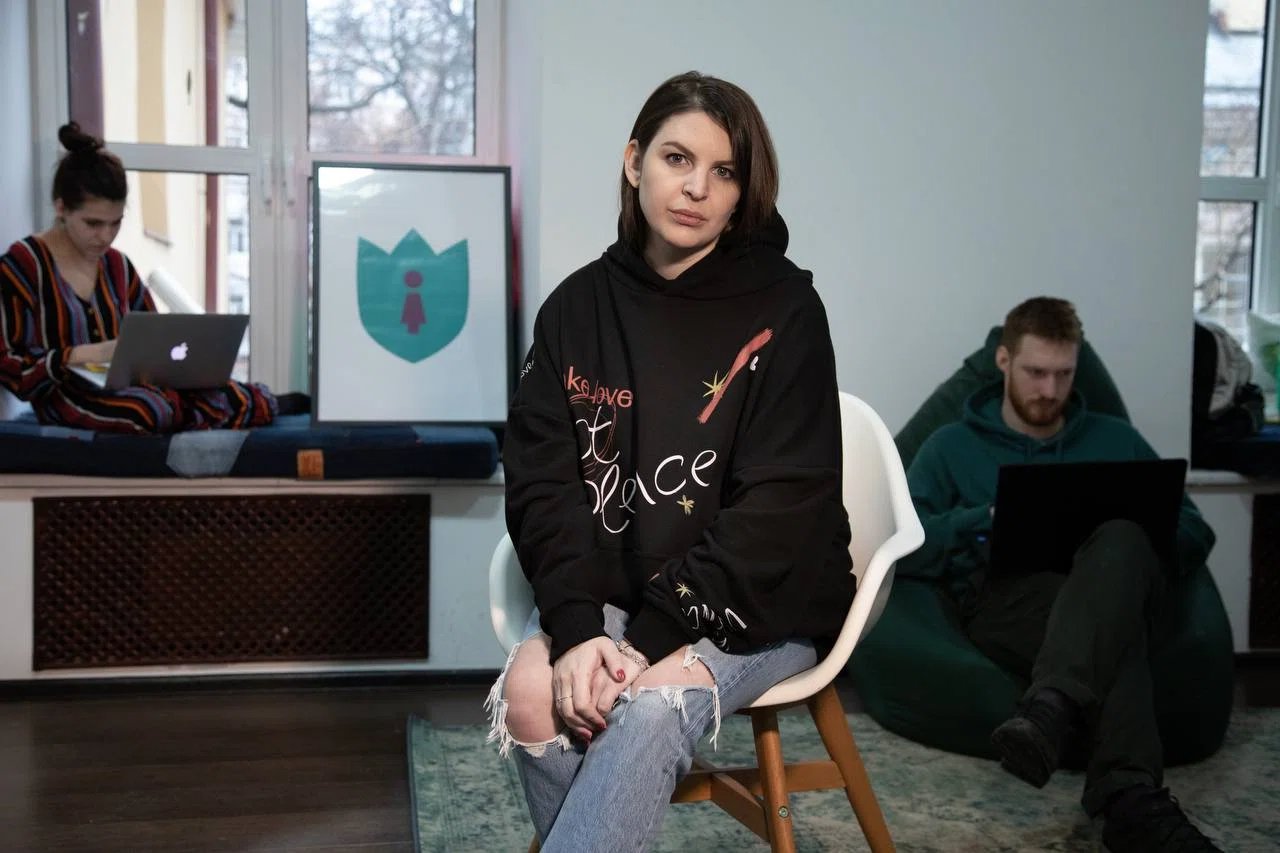
ABUSERS WALK FREE. One of the center's clients shared this story anonymously with our reporter about the abuse she suffered from her boyfriend. "I suffered a concussion. First, he pushed me against the wall and tried to strangle me. I was able to hit him in the groin — he immediately let me go. Then I tried to run away, but he grabbed me by the neck and threw me to the floor, hitting my head on the tiles." The woman eventually left her boyfriend and filed a police report. He continues to stalk her. Under Russian law, this man is not a criminal.
WHAT DOMESTIC VIOLENCE? Nobody knows how many victims of domestic violence there are in Russia. There are no specific, regular statistics because there is no criminal article regarding violence between family members. In 2017, domestic abuse causing "minor harm" was decriminalized. Later, in 2019 the Russian government tried to put together a draft law addressing the issue. But human rights defenders heavily criticized it for being too weak. The draft law was shelved due to the pandemic.
THE PANDEMIC CAUSED A HUGE INCREASE IN DOMESTIC VIOLENCE INCIDENTS. The center now provides legal and psychological online consultations five days a week. There are 15 to 40 calls a day, says the center's administrator Nastya Budko, with calls from all over Russia. In 2020, 960 victims contacted the center, especially during the quarantine period. The pandemic has caused a considerable increase in domestic violence around the world. But according to official Ministry of Internal Affairs figures, in April 2020, there was an implausible 9 percent drop in household crimes in Russia. At the same time, several human rights organizations in a joint report in July 2020 said that the number of requests for domestic violence assistance in Russia had increased 2–2.5 times.
BACKSTORY. Mapping the extent of domestic violence in Russia is notoriously tricky, with the prevailing societal attitude being 'he beats you because he loves you.' In the 'hyper-macho' culture of Putin's Russia, the Russian government insists that domestic violence issues should be sorted out privately within the family. The latest data (2018) collected by human rights defenders suggest that approximately 5,000 of the 8,300 Russian women killed over that year died at the hands of their partners. The Ministry of Internal Affairs reported that only 253 women were killed as a consequence of domestic violence. The Russian Ministry of Justice claims that domestic violence figures are exaggerated or inflated artificially. Endemic domestic violence in Russia exists within the larger context of unaddressed femicide in the region, where patriarchal structures are still widespread and violence in the home is frequently normalized, leaving many women afraid to seek help.
Read full report on everyday reality of Russian activists fighting domestic violence here.
Other Top Stories Russia Has Been Reading Last Week
- I SIMPLY HAVE TWO MOTHERS. As part of Novaya Gazeta’s “Different” series in partnership with Glasnaya media, we peel back the curtain on Russia’s families that don’t conform to the gendered, monogamous, or patriarchal models standard in Russian society. This week, we spoke with Alex, who tells us about her experience having two mothers. “A normal family is when you feel comfortable with these people, when you trust them, when you enjoy spending time together,” she says. “Dad has always been, and remains in, my life.” A major issue confronting LGBTQ+ parents in Russia is the possibility that they will lose their children, though — as well as the obvious cases of violence. “Once in the subway, a man beat her and pulled out all her piercings,” Alex says, recalling one particularly violent homophobic attack. After publishing previous, similar stories, Russian officials ++have launched investigations specifically targeting LGBTQ+ citizens++ with kids. The country has seen a heavy-handed crackdown on LGBTQ+ rights intensify since 2013, when it passed an anti ‘gay propaganda’ law, banning the exposure of minors to materials portraying LGBTQ+ lifestyles in a positive light.
- BIG ON POPULISM, SMALL ON HELPFUL AID. Economist Igor Nikolaev examines Russian President Vladimir Putin’s 17th State of the Nation address for Novaya Gazeta. “The strategic direction is to support families with children,” he writes, adding that the socioeconomic measures being announced are extremely targeted and not particularly, generally helpful — especially as real income continues to decline. “So-called targeted measures, which are unlikely to be able to change the situation as a whole, are not systemic measures,” Nikolaev writes.
Поддержите
нашу работу!
Нажимая кнопку «Стать соучастником»,
я принимаю условия и подтверждаю свое гражданство РФ
Если у вас есть вопросы, пишите [email protected] или звоните:
+7 (929) 612-03-68